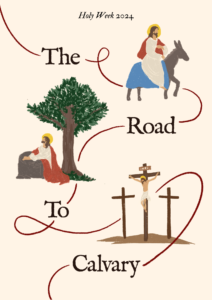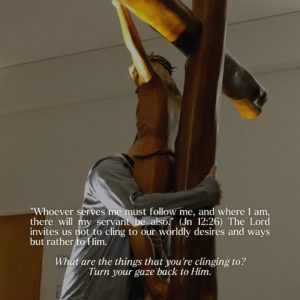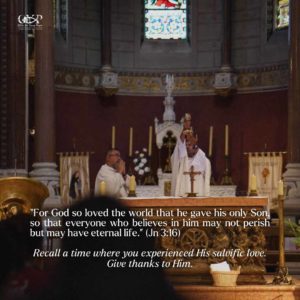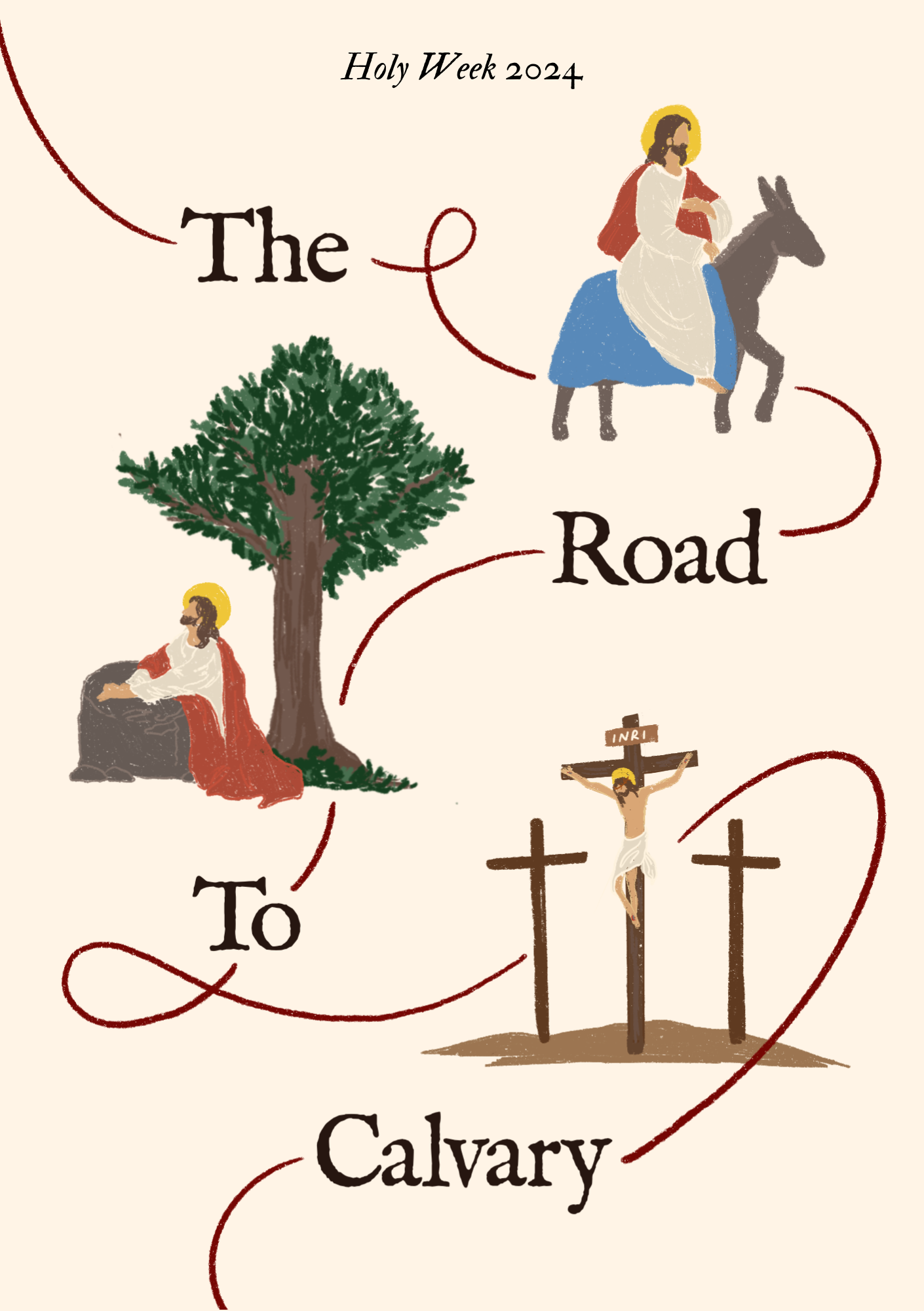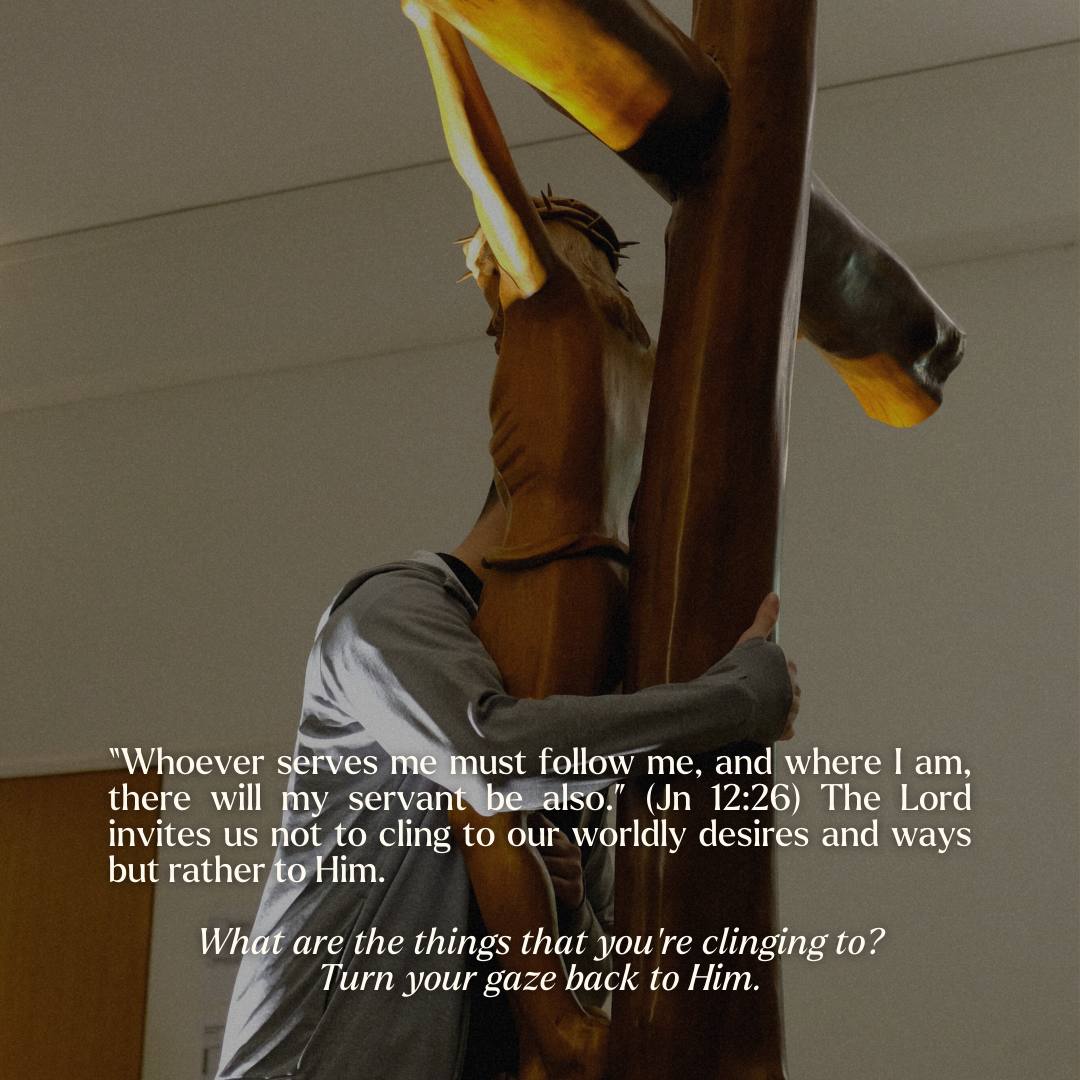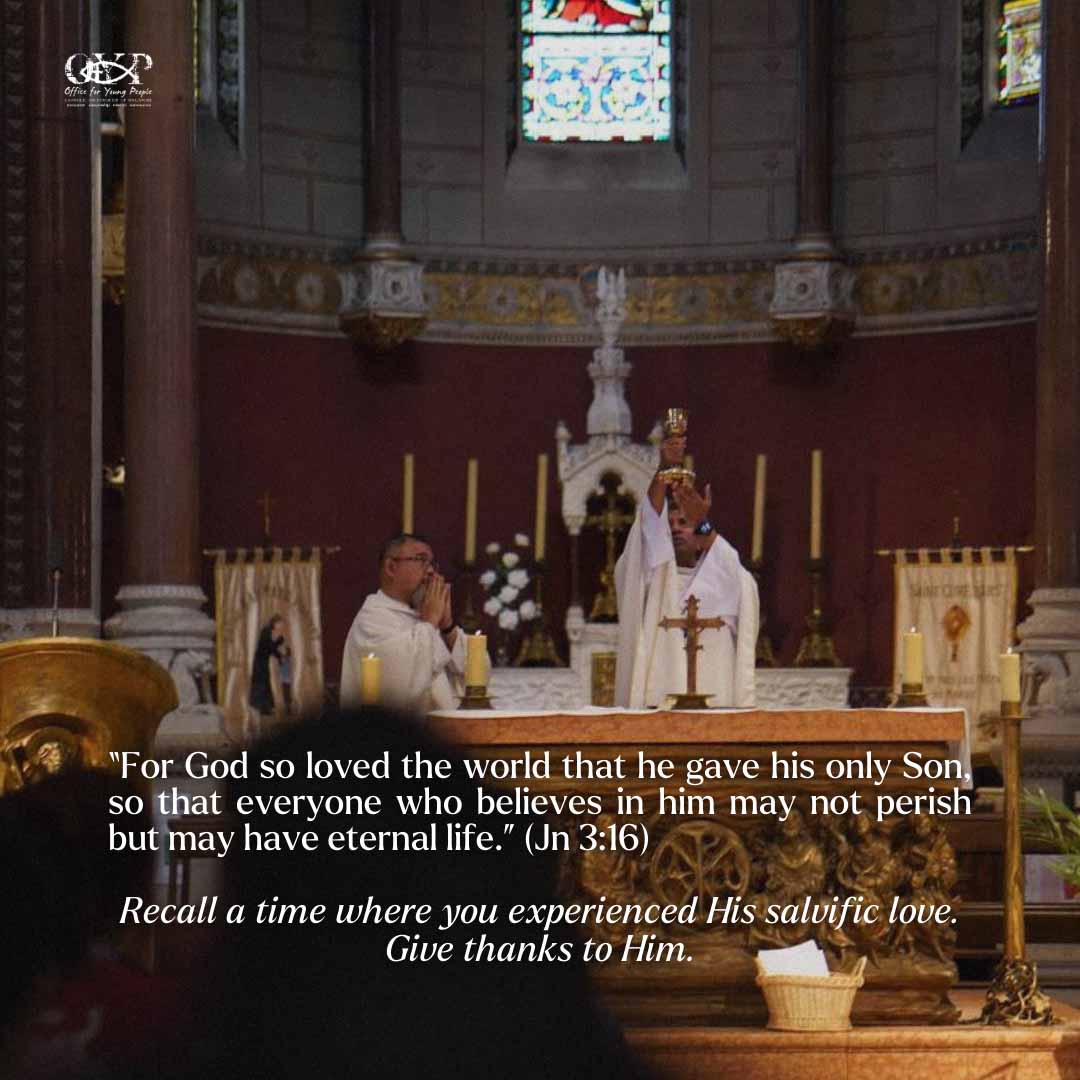By Nicholas Loo
I was recently reflecting on the ancient Christological hymn that St Paul quotes in his letter to the Philippians. In the letter, St Paul was extolling the church of Philippi towards the practice of unity through humility, and he points to the supreme humility of Jesus ‘who, being in the form of God, did not count equality with God something to be grasped. But he emptied himself… he was humbler yet, even to accepting death, death on a cross. And for this God raised him high, and gave him the name which is above all other names, so that all beings in the heavens, on earth and in the underworld, should bend the knee in the name of Jesus, and every tongue confess Jesus Christ as Lord, to the glory of God the Father’ (Philippians 2:6-11).
The most immediate reaction for those of us who have heard these verses before is to receive the words of the first-century hymn at face value. We know of the divinity of Jesus Christ, the basic truth that supreme authority has been established after He rose from the dead, making a way for mankind to overcome sin and death. We know that just the name of Jesus itself holds incomprehensible power, manifest in its invocation. Yet, the more time I spent reflecting on the words of the hymn and its claim, an alarming thought begin to shape itself: Why then, does Jesus often seem powerless in our lives? If this hymn is to be accepted as it is, how has this power really displayed itself in my life and for those around me? There appeared to be a real tension between the proposed power of the name of Jesus and the reality of our conditions.
Man’s Obstinacy
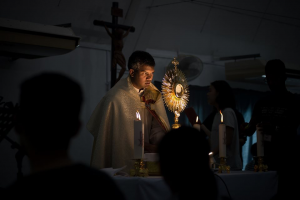
There is a story passed on involving St Anthony of Padua and what is possibly the most amusing Eucharistic miracle. In the 12thcentury, an Italian man named Bononillo refused to accept the belief in the Real Presence and mocked others for their belief. After long discussions of the subject with the stubborn man, the saint was finally inspired to claim that even the mule Bononillo rode on could recognise the divine presence in the Eucharist. Bononillo agreed to test this claim and starved the animal for three days prior to the appointed time. When it arrived, Bononillo, standing behind a stack of hay, called the animal towards him while St Anthony stood a distance away with the Blessed Sacrament. To Bononillo’s shock, the mule ignored him completely, went before the Sacrament that St Anthony was carrying and bent down before the monstrance. Afterwards, Bononillo confessed his disbelief and came to take his faith much more seriously.
How is this story relevant? It occurred to me that for all the instances where we witness creation bending before their Creator, hellish powers trembling before divine authority, there is one creature that remains obstinate to the rightful confession. It is man! While the planets in the cosmos continue to revolve around the sun exactly as they have been made to do so, while we hear of instances in the gospels and personally from missionaries and priests, of evil spirits screeching in the presence of Jesus, ‘I know who you are, the Holy One of God’ (Mark 1:24), the Almighty allows the gift of freedom to remain only with the pinnacle of His creation. I refer less to an intellectual rejection of God’s existence but in a more sobering manner, to our struggle with authentic discipleship. I asked myself: How is it that Jesus is Lord when more often than not, my knee has refused to buckle because of my desire for control, and my tongue has been driven only by my own ego?
We often become Bononillos of our own time. We do not reject the doctrine of the Real Presence but our beings have not submitted sufficiently to the authority of Jesus Christ who has been exalted as Name above all names. Too often do we still allow distrust and sin to reign in our choices, above and over the name of Jesus. God remains as the gentle voice that only becomes apparent when all else fails, when we reach the point where the futility of our own strivings stares at us in the face. We invite Him in only when all options are exhausted and we are finally able to surrender in prayer. Yet, this practice does not seem to do justice to the claim of supreme authority given to the Name above all, as asserted in the letter to the Philippians. For me, the central question in this reflection became: How then, does God plan to resolve the tension between allowing man to remain free while also establishing all authority in the name of Jesus?
His Self-Emptying Love

A possible resolution surfaces from recognising an intrinsic link between the interpretation of the hymn in Philippians, to what Jesus reveals as God’s plan for salvation in John’s gospel. Jesus tells his disciples ‘just as Moses lifted up the serpent in the desert, so must the son of man be lifted up, that everyone who believes may have eternal life in him’ (John 3:15). In another chapter, Jesus explains that ‘when I am lifted up from this Earth, I will draw all people to myself’ (John 12:32). We know retrospectively that Jesus is speaking of his crucifixion. But is that all? The lifting of Jesus’ name that is found in Philippians is, in truth, not distinct from the lifting on the cross that Jesus refers to in John’s gospel but it is the same glorification. It occurred to me that this is exactly how God perfectly establishes His glory in the stubborn hearts of men.
When St Paul mentions the humble Christ accepting ‘even death, death on a cross’ and ‘for this, God rais[ing] him high’, he says this not as a criterion by which Christ had to fulfil before God could exalt him, as if it was simply procedure, but precisely as the means through which mankind might finally be humbled before God. On Sinai, God asserted his commandments to Israel with deafening thunder and flashes of lightning but lawlessness would still take over in the desert. To Elijah and the prophets, He communicated not through the earthquake nor the raging fire but whispered in the gentle wind. Still, He would be rejected by people addicted to false idols. Now breathing His last on Calvary, God becomes silent. The Lamb opens not his mouth, but it is through this silence that the definitive Word resounds in hearts through all of eternity. In the face of such incredible self-emptying love, by witnessing the selflessness and purity that comes from a God who ‘so loved the world that He gave his only Son’ (John 3:16), man finally buckles their knees to receive the gift of divine love and life. How else would a creature so used to abandonment and separation finally regain trust in providence, except by recognising that it is Creator who has taken every means to prove love? How else might a self-dependent race, so dangerously adrift in pride, be found again, except by gazing upon incomprehensible humility? How else might a wayward child be persuaded to return home, except by the opening of his eyes to the vulnerable, broken heart of his helpless Parent?
Our Response
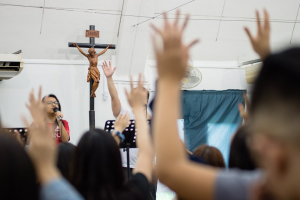
In truth, the Name above all names must become first in our hearts if its authority is to hold true for our lives. The conversion of our hearts is the key to the glorification of Jesus’ name in the final place that it has yet to be truly raised above all. If we are to conquer the world, then we must first allow Him to conquer our hearts. Allowing the love of God in Jesus Christ to become our deepest joy and foundation comes from recognising that He died for us while we were still sinners (Romans 5:8). Only then will His name resound over temptation, over apathy and over the anxieties in our lives. How can this be done? Just as He was raised on Calvary, He must be raised in our hearts.
I am quite unable to find an instance in my life where Jesus has failed to be present, where He has not worked to redeem. I have hung on the cross, rightfully so, with my deeds and shame made bare to the world. Yet, I have found Jesus hanging with me and, like the good thief, I was given the grace to recognise that ‘this man has done nothing wrong’ (Luke 23:41). He remains with me exactly where I am. He enters into the helplessness of my addictions and wilful choices, and simply reminds me that His love does not change. Where can we go to run from his presence? What power can separate us from his love? God will not overwhelm us with force or authority, but He lavishes His love upon us as we invite him to. He is constantly drawing you to Himself because the closer your heart is to His, the more you allow Him to love you and to save you. With every saving action He has done in my life, I have come to believe more and more that it is only Jesus who saves, and it is only in Him that there is hope, the anchor of the soul (Hebrews 6:19).
The challenge then is our response to this overwhelming and incredible love of our Father. Do we dare to respond in faith that the Lord has authority over the brokenness, shame and death in our lives? Do we dare to remain in His house and to boldly shout His name into the darkness of our hearts? The centurion who was facing the scene of the crucifixion not only gazes but recognises the perfect image of the unseen Father, the God who is Love, and he finally confesses: ‘Truly this man was the Son of God.’ (Mark 15:39). Like the centurion, the Lord invites us to move from ignorance into humility, through the recognition that He is the only One who can ever save. Let us begin to allow the confession that He is above all, to take place in our hearts. If we have been astray or indifferent, let us recognise at the foot of the cross that He is drawing us ever closer, into love and into redemption. Let the name of Jesus, the name above all names, have the final say in your life. Amen.

About me: Hi, I’m Nick! I’m currently an undergraduate at NUS and CTIS. I’m a part-time musician, and I came to know Jesus more intimately through the Blessed Sacrament and music. St Peter’s stories get me every time, a concrete reflection of my own struggle with my over-enthusiasm and impulsive tendencies. I hope to bring souls to Jesus, if even a few!
Office for Young People seeks to raise up a generation of young people passionately in love with Jesus and His Church.
Follow OYP on Facebook, Instagram, and Telegram now to stay updated with our latest events and happenings!



